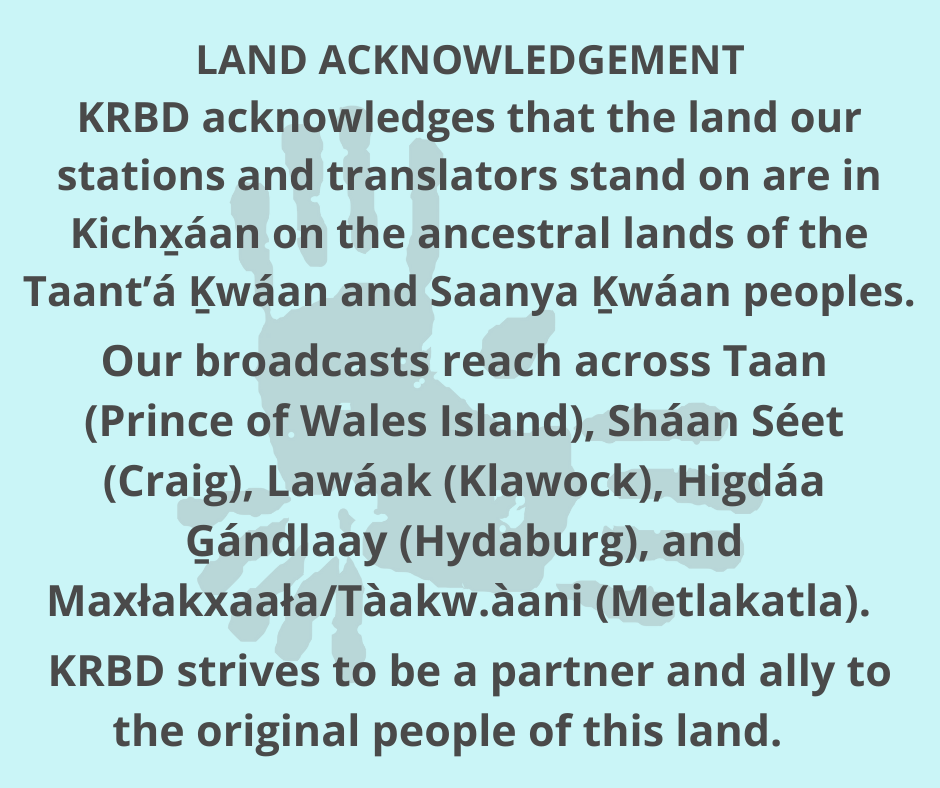
A federal judge in Juneau on Monday sentenced two members of a Washington state family who sold over 1 million dollars of fake Alaska Native art in Ketchikan. The judge gave the mother and son five years of probation, a few months of home confinement, and a couple hundred hours of community service.
Forty-six-year-old Glenda Rodrigo and 24-year-old Christian Rodrigo pled guilty last month to violating the federal Indian Arts and Crafts Act. They were part of a scheme to pass off fake stone carvings and wood totem poles as traditional art made by local Tlingít and Haida artisans.
Cristobal Rodrigo, Glenda’s husband and Christian’s father, was sentenced in 2023 to two years in prison for his role in the scheme. It’s still the longest sentence a defendant has received for any similar violation in the United States, according to the U.S. Department of Justice.
The Rodrigo family ran two storefronts in downtown Ketchikan — Alaska Stone Arts and Rail Creek. They were living in Washington state at the time. Rail Creek sold mostly wooden totem poles and Alaska Stone Art sold stone carvings. Both though were advertised as being made by Alaska Native master carvers and artisans.
But they were actually sourced from a business in the Philippines called Rodrigo Creative Crafts. The company in the Philippines was owned by Glenda Rodrigo. Its sole purpose was to use Filipino labor to make knock-off Alaska Native designs.
They were then shipped to the U.S. and the Rodrigo’s Ketchikan storefronts. The family even hired Alaska Native people to sell the art as their own. Federal prosecutors found that the workers told customers they were all one big family and made everything from locally sourced materials.
The stores operated from 2016 to 2021. In 2019 alone, after they’d unknowingly drawn the attention of federal agents, they sold nearly $1 million of the fake art.
Cristobal Rodrigo worked in the tourist trade for over 20 years before the family started Rail Creek and Alaska Stone Works. According to the Department of Justice, he went to the Philippines in the late 90s to teach the Filipino employees of his wife’s company how to imitate Alaska Native styles. He also handled most of the day-to-day operations in Ketchikan.
Glenda oversaw the Philippines operation from afar, and the affairs at both stores — though she only co-owned one of them with her husband. Cristobal was the sole owner of Rail Creek.
As for Christian, he worked as a salesperson and helped operate the stores.
Meridith Stanton is the Director of the Indian Arts and Crafts Board. In a written statement, she said that she hopes the sentences will send a strong message to those who may prey on real Alaska Native artists and vulnerable consumers.
“Fakes and counterfeits, such as those marketed for huge sums of money by the Rodrigos, tear at the very fabric of Alaska Native culture, Native livelihoods, and Native communities,” Stanton said.
Glenda Rodrigo was sentenced to up to six months of home confinement and 240 hours of community service, and Christian Rodrigo was sentenced to up to three months of home confinement and 200 hours of community service. Plus, both defendants are required to serve five years of probation and write a letter of apology to be published in the local newspaper. The whole family is required to pay a little over $54,000 in restitution.








